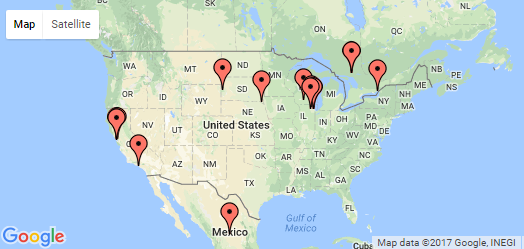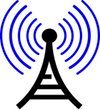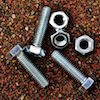The Friday Flyer on the 13th! What can go wrrong?

Spotlight on Dark Matter Day
October 31 is a day for trick-or-treat, The Great Pumpkin and . . . Dark Matter. This year, that date is also Dark Matter Day, organized worldwide to promote public understanding and awareness of dark matter. Events are actually going on all month and spill into November. You can look for an event near you, or perhaps your QuarkNet center can have one. It does not take much: a talk, a cafe event, or something else that is simple. The website provides a Starter Kit and a way to add your event. Indiana University South Bend plans an event on campus, and the Notre Dame QuarkNet teachers plan to help. It is not too late: think about it!


News from QuarkNet Central
Plan to participate in World Wide Data Day on November 14? Well, we need to hear from you by October 24 (in 11 days), so please register. To help you let students know about it, we've prepared a nice flyer.
Don't forget International Cosmic Day on November 30.
We have two important masterclass circulars coming out October 20 and 27 to explain the sign-up process. Masterclass videoconferences run February 15 to March 28 for CERN and March 3-24 for Fermilab with an "extra weekend" on April 6-7. International Masterclass Central this past week and next week is at Notre Dame as Uta Bilow from Technische Universität Dresden is visiting. Uta and Ken are working together on IMC coordination.
Our colleagues in Puerto Rico are challenged after Hurricane Maria. QuarkNet mentor Hector Mendez, now at Fermilab, reports that the University of Puerto at Mayaguez (UPRM) "is working hard to recover from hurricane Maria's damage and resume classes in a few weeks" - it seems the target is October 30. To get updates, one can consult the UPRM emergency information website (in Spanish). AAAS has a begun an online campaign to support science in Puerto Rico. As we learn more of the needs of QuarkNet teachers affected by hurricanes this year, we will report to you.

QuarkNet Website Nuts and Bolts
Here's a tip for those who upload Word files for Annual Reports: if you have jpg images embedded, the images will not upload, so convert your file to PDF first and then upload that. Our IT staff are working on making these uploads easier. For more on Abstracts, see the How-to page on the topic. Contact Ken or Shane with any questions.
You may have noticed a change in the buttons at the top of the site. (Look up!) Now, if you are not logged in, you can still get to MASTERCLASSES. And we've added a button, also available without login, for E-LABS. On the other hand, TOOLS is now only visible if you are logged in.

Physics Experiment Roundup
This week we look at LHC past, present, and future. First off, October 1 was the 25th birthday of CMS! It is now in its young adulthood, crisply handling data on the highest-ever rate of collisions from the LHC. Yesterday was a bit different, though, as LHC collided xenon nuclei. Physicists are already working on the future high luminosity upgrade. One new feature is also old: physicists will reboot tech from the 60's, canted cosine theta magnets, as correctors for imperfections of other magnets in the accelerator.

Resources
Did the Nobel Prize renew that thirst to learn about gravitational waves? Pure refreshment is available in the form of original papers by the winners. Challenge yourself and enjoy! On the more philosophical side (IB teachers, this is potential ToK material), symmetry explains how physicists try to remove bias to be sure we really know what we think we know.

Just for Fun
Multiverses? Chaotic systems? Love? A play runs through them, as explained in symmetry. Over at IBM, they are more interested in cinema and made the smallest movie in the world. What else in the world? Oh, right: LIGO in song. (H/T to Rick Dower.)
QuarkNet Staff:
Mark Adams: adams@fnal.gov
Ken Cecire: kcecire@nd.edu
Shane Wood: swood5@nd.edu